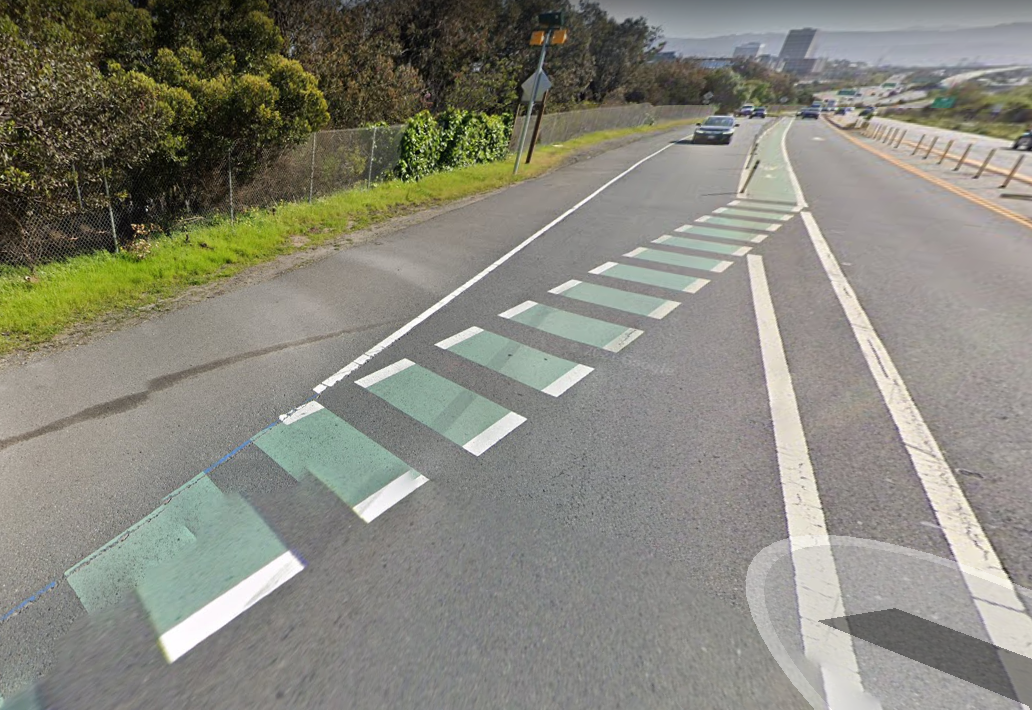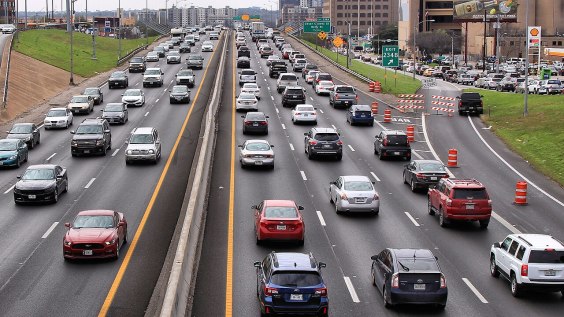Note: GJEL Accident Attorneys regularly sponsors coverage on Streetsblog San Francisco and Streetsblog California. Unless noted in the story, GJEL Accident Attorneys is not consulted for the content or editorial direction of the sponsored content.
Last December, Caltrans released a new Director's Policy establishing an organization-wide priority to encourage and increase walking, bike, transit, and passenger rail modes in California, in keeping with state and departmental sustainability, climate, and resilient community goals. There were many questions raised about how that might be done, as it would be such a huge cultural shift within the department and past similar directives have had seemingly little effect.
This week the department released its Complete Streets Action plan, which is basically a list of specific actions to be taken by Caltrans to encourage this shift towards equitable and safer transportation.
The actions are categorized into general areas such as data collection, policies, and guidance, and includes which division or district is responsible and when the task is to be completed. This action plan focuses on tasks to be done within 2022 and 2023.
Caltrans' new Director Tony Tavares, in his introduction, reminds everyone of the context behind this policy rejigger:
"We are working as a Department to shift our vehicle-centered focus of transportation planning and project development toward a human-centered approach," he writes.
Complete streets serve as a key approach to facilitating the sustainable and equitable mobility of people on and across the State Highway System.
As a Department, we recognize that investments in walking, biking, transit, and passenger rail can produce meaningful and transformative projects that can help to address legacy impacts on underserved communities that have been historically segmented and harmed by our state’s transportation network. In California, many Caltrans-owned and operated highways serve as main streets for communities.
For this reason, Caltrans’ complete streets work is imperative to ensuring accessible, connected transportation options for travelers of all ages and abilities.
The list of tasks in the action plan will support the implementation of the Director’s Policy on Complete Streets (DP-37), while also working to achieve broader Caltrans and state goals on climate action, equity, livability, and better multimodal transportation options.
A summary of all the actions appears on pages 5 and 6 of the plan, but a couple of preliminary observations are worth making. First, some of the tasks are extremely basic first steps towards building capacity at Caltrans to make this policy switch. For example, one action is to identify "procurement pathways" for whatever specialized equipment will be needed to maintain complete streets, once they are done; another is to "develop recommendations to update existing complete streets maintenance equipment policies."
Second, the districts all seem to be in very different stages of developing their own Complete Streets plans and actions. So in District 4 - the Bay Area, which is farther ahead on planning for active transportation than most of the other districts - one near-term task is to establish a District Office of Transit and Active Transportation, with new duties coordinating complete streets performance and planning. This is to be completed by District 4 by December of this year.
But District 11 - San Diego and Imperial counties - will only be developing a complete streets advisory committee to weigh in on projects and questions. And District 6, in the Central Valley, will simply come up with a memorandum defining how its divisions will work collaboratively "to ensure a strategic approach and well-coordinated complete streets program."
Other actions on the list for 2022 include :
- Developing minimum expectations for complete streets facilities, patterned after the most recent American Association of State Highway and Transportation Officials Green Book, and including design guidance on reduced lane widths on complete streets projects.
- Updating statewide policy and guidance for bicycle access through work zones on the state highway system and developing new specifications and plans for temporary bicycle access routes.
- Developing a process for tracking the inclusion of complete streets elements in major highway pavement and bridge projects, including any exceptions signed by district directors, and codifying the process into existing internal Caltrans procedures.
- Developing an active transportation benefit/cost tool that can be used for project evaluations statewide.
- Creating a database of active transportation projects on the state highway system that are ready for funding.
- District 4 is also called on to create an "accessible" (to the public?) inventory of its "complete streets assets" including pedestrian and bicycle highway crossings and transit lanes.
- District 5, along the Central Coast, will "evaluate active transportation needs" to be incorporated into projects the district proposes for State Highway Operations and Protection Program funding.
- District 12, in Orange County, will begin a pilot pedestrian and bicycle count collection project, deploying cameras along "active transportation-significant corridors."
These early actions are necessary first steps for shifting Caltrans' focus towards sustainable transportation that serves everyone. The detailed task list also shows just how far the state needs to go before Caltrans can claim that Complete Streets are fully incorporated into its work.





